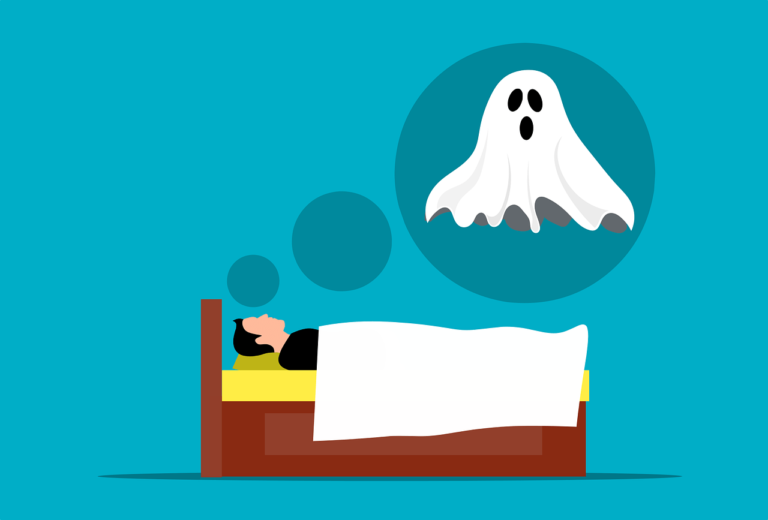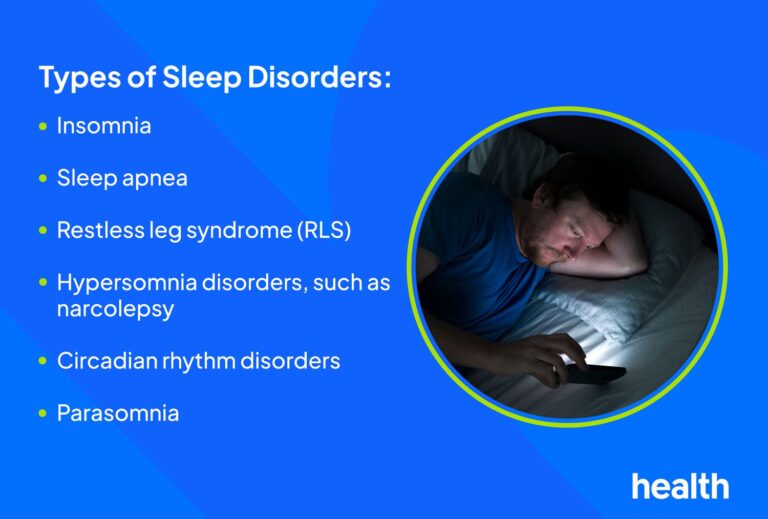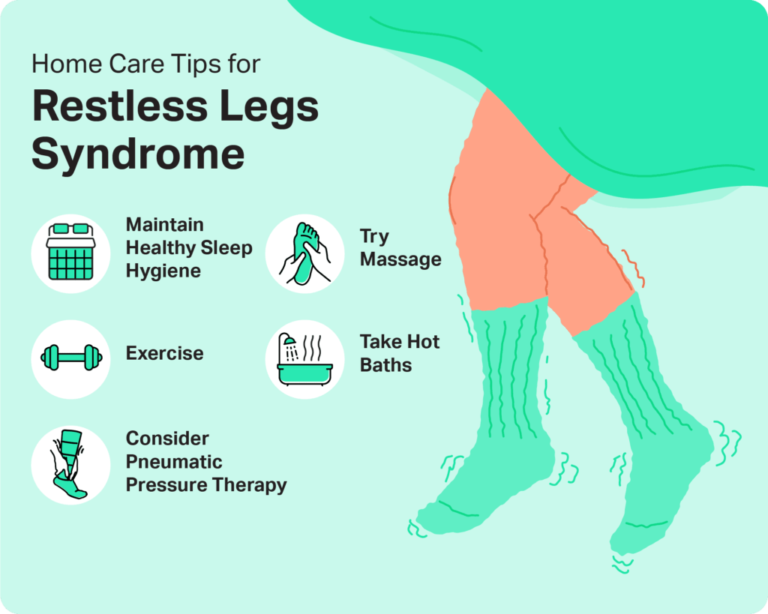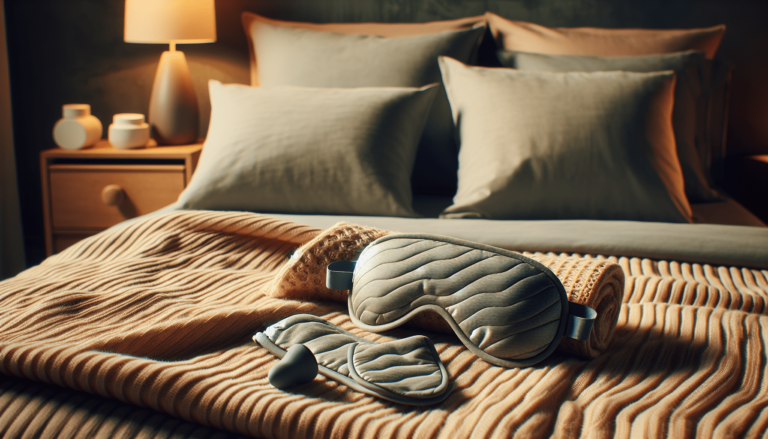The Importance of Diagnosing Sleep Apnea: A Comprehensive Approach

Are you struggling to get a good night’s sleep? If so, you’re not alone. In today’s fast-paced world, sleep disorders have become increasingly common and can have a significant impact on your overall health and well-being. That’s why it’s essential to consider completing a sleep study to diagnose any potential sleep disorders, such as sleep apnea. If left untreated, sleep apnea can lead to serious health issues like heart attacks, strokes, and high blood pressure. At Vector Sleep Clinic, we offer a comprehensive approach to diagnosing and treating sleep disorders, ensuring you can enjoy restful nights and improved quality of life. So, if you’re wondering how to diagnose sleep apnea at home, let us help guide you towards a solution that will bring back the magic of restful nights.
This image is property of pixabay.com.
Sleep Disorders: Understanding the Problem
Sleep disorders have become increasingly common in today’s fast-paced world, with many individuals experiencing difficulties in achieving restful and uninterrupted sleep. These disorders, such as insomnia, sleep apnea, and restless leg syndrome, not only impact our ability to function optimally during the day but also pose serious risks to our overall health and well-being.
At Vector Sleep Clinic, we understand the detrimental effects of sleep disorders and are committed to helping you overcome them. With our expertise and personalized care, we aim to provide you with the tools and treatments necessary for a rejuvenating and uninterrupted night’s sleep.
Why Should You Consider Completing a Sleep Study?
Completing a sleep study is a crucial step towards understanding and addressing any underlying sleep disorders you may have. By undergoing a sleep study, you can gain valuable insights into your sleep patterns and identify any potential issues that may be hindering your ability to obtain restful sleep.
By participating in a sleep study, you can uncover the root cause of your sleep problems and receive a proper diagnosis. This can be particularly beneficial if you have been experiencing symptoms such as excessive daytime sleepiness, loud snoring, or pauses in breathing during sleep. Understanding the specific sleep disorder you may be facing allows for targeted and effective treatment strategies to be developed.
The Dangers of Untreated Sleep Disorders
Without proper diagnosis and treatment, sleep disorders can lead to a plethora of health complications that can significantly impact your quality of life. Let’s explore some of the dangers associated with untreated sleep disorders:
Heart Attacks
Sleep disorders, especially sleep apnea, have been linked to an increased risk of heart attacks. The interrupted breathing patterns during sleep can cause a drop in oxygen levels, putting undue strain on the cardiovascular system. This strain can ultimately result in the development of heart-related conditions.
Strokes
Similarly, untreated sleep disorders can also contribute to an increased risk of strokes. Through mechanisms such as increased blood pressure and inflammation, sleep disorders can elevate the likelihood of experiencing a stroke and its associated devastating consequences.
High Blood Pressure
Sleep disorders, particularly sleep apnea, have been strongly associated with high blood pressure. The repeated interruptions in breathing and the subsequent oxygen deprivation can cause an elevation in blood pressure levels, increasing the risk of cardiovascular problems.
Car Accidents
The fatigue and excessive daytime sleepiness experienced as a result of sleep disorders can significantly impair one’s ability to drive safely. Studies have shown that individuals with untreated sleep disorders are at a higher risk of being involved in car accidents due to their diminished alertness and impaired reaction times.
Problems at Home or Work
The effects of untreated sleep disorders extend beyond physical health concerns and can also disrupt one’s personal and professional life. Chronic fatigue and lack of energy can negatively impact productivity, relationships, and overall well-being. Moreover, the irritability and mood fluctuations associated with sleep disorders can strain interpersonal relationships and create difficulties at work.
Sexual Dysfunction
Sleep disorders, particularly those that cause disrupted or inadequate sleep, can negatively impact sexual health. This can manifest as reduced libido, erectile dysfunction, or other sexual performance issues. Addressing sleep disorders can help restore normal sexual function and enhance overall intimacy and satisfaction in relationships.
Obesity
Sleep disorders and obesity often go hand in hand, creating a vicious cycle that can be challenging to break. Lack of sleep can disrupt the balance of hormones regulating appetite and satiety, leading to increased cravings for unhealthy foods and decreased motivation for physical activity. Conversely, the excess weight from obesity can worsen symptoms of sleep disorders, further perpetuating the cycle.
The Importance of Diagnosing Sleep Apnea
Among the various sleep disorders, sleep apnea deserves special attention due to its prevalence and potential health implications. Diagnosing sleep apnea accurately and promptly is crucial for several reasons:
Better Understanding of the Condition
A definitive diagnosis of sleep apnea can provide a deeper understanding of the condition, its severity, and the specific factors contributing to its development. This understanding allows for more targeted treatment and management strategies to be implemented.
Identification of Appropriate Treatment
Accurate diagnosis helps in determining the most appropriate treatment options for sleep apnea. Whether it be lifestyle modifications, continuous positive airway pressure (CPAP) therapy, or other interventions, the proper diagnosis ensures that you receive the most effective and tailored treatment for your specific needs.
Reducing Health Risks
Addressing sleep apnea through appropriate treatment can significantly reduce the associated health risks. By ensuring an adequate and uninterrupted flow of oxygen during sleep, treatment can minimize the strain on the cardiovascular system, reduce the risk of heart attacks and strokes, and help maintain healthy blood pressure levels. Additionally, treatment can alleviate excessive daytime sleepiness, improve cognitive function, and enhance overall quality of life.
This image is property of pixabay.com.
Methods for Diagnosing Sleep Apnea
To accurately diagnose sleep apnea, various methods of evaluation and assessment are employed by healthcare professionals. These methods can include:
Polysomnography
Polysomnography is a comprehensive and detailed sleep study conducted in a specialized sleep clinic. It involves monitoring various physiological parameters during sleep, such as brain activity, eye movements, heart rate, breathing patterns, and oxygen levels. Polysomnography allows for the precise diagnosis of sleep apnea and provides valuable information for treatment planning.
Home Sleep Apnea Testing
Home sleep apnea testing is a more convenient and cost-effective alternative to polysomnography. It involves the use of portable monitoring devices that measure specific parameters, such as airflow, oxygen saturation, and respiratory effort. While not as comprehensive as polysomnography, home sleep apnea testing can still provide valuable data for diagnosing sleep apnea when performed under proper guidance.
Clinical Assessment
A clinical assessment, conducted by a healthcare professional specializing in sleep disorders, involves a thorough evaluation of your medical history, sleep habits, and symptoms. This assessment helps in identifying any potential underlying causes or risk factors for sleep apnea. Based on the clinical assessment, further diagnostic tests, such as polysomnography or home sleep apnea testing, may be recommended.
Benefits of Diagnosing Sleep Apnea
Diagnosing and effectively treating sleep apnea can bring about a multitude of benefits that extend beyond improving sleep quality. Let’s explore some of the advantages associated with diagnosing sleep apnea:
Improved Quality of Life
By addressing sleep apnea, you can experience a significant improvement in your overall quality of life. Quality and restful sleep positively impact your mood, mental well-being, cognitive function, and energy levels. With complete and rejuvenating sleep, you can feel more energized, focused, and ready to take on the day.
Reduced Health Risks
Through an accurate diagnosis and appropriate treatment, you can greatly reduce the health risks associated with sleep apnea. By maintaining healthy blood pressure levels, reducing the strain on the cardiovascular system, and addressing potential comorbidities, you can lower the chances of heart attacks, strokes, and other serious health complications.
Enhanced Cognitive Functioning
Sleep apnea can have a profound impact on cognitive function, leading to difficulties with memory, concentration, and problem-solving abilities. Diagnosing and treating sleep apnea can help alleviate these cognitive impairments and enhance your mental clarity and performance in daily activities.
Increased Energy Levels
One of the fundamental benefits of treating sleep apnea is the restoration of optimal energy levels. By ensuring proper and uninterrupted sleep, treatment can help combat excessive daytime sleepiness and fatigue. With increased energy levels, you can fully engage in your personal and professional pursuits, enjoying a more active and fulfilling lifestyle.
This image is property of pixabay.com.
Comprehensive Approach to Diagnosing Sleep Disorders
At Vector Sleep Clinic, we adopt a comprehensive and personalized approach to diagnosing and treating various sleep disorders. Our team of experienced and dedicated healthcare professionals are committed to providing you with the highest quality of care, ensuring that your unique needs and concerns are addressed.
The Role of Vector Sleep Clinic
When it comes to superior sleep diagnostic services and treatment options, Vector Sleep Clinic is a trusted and reliable resource. We understand the importance of accurate diagnosis and tailored treatment plans, and our team of licensed and insured professionals is committed to delivering comprehensive and individualized care.
Diagnostic Services Provided by Vector Sleep Clinic
At Vector Sleep Clinic, we offer a range of diagnostic services to assess and evaluate sleep disorders effectively. Our services include:
-
Polysomnography: Our state-of-the-art sleep clinic is equipped with advanced monitoring technology to conduct comprehensive polysomnography tests, gathering essential data to diagnose sleep disorders accurately.
-
Home Sleep Apnea Testing: For your convenience, we also provide home sleep apnea testing, allowing you to undergo diagnostic evaluation from the comfort of your own home. Our healthcare professionals will guide you through the process, ensuring accurate and reliable results.
-
Clinical Assessment: Our experienced sleep specialists conduct thorough clinical assessments, taking into account your medical history, sleep habits, and symptoms to narrow down the potential causes of your sleep disturbances.
Treatment Options for Sleep Apnea
Vector Sleep Clinic offers a wide array of effective treatment options for sleep apnea, tailored to suit your individual needs and preferences. Our treatment options may include:
-
Continuous Positive Airway Pressure (CPAP) Therapy: CPAP therapy involves wearing a mask over your nose or mouth during sleep, delivering a continuous stream of air pressure to keep your airway open. This treatment method is highly effective in managing sleep apnea and ensuring uninterrupted breathing.
-
Lifestyle Modifications: Our team will work closely with you to identify and address any lifestyle factors that may be contributing to your sleep apnea. This may include weight management, adopting a regular sleep schedule, avoiding certain sleep-positioning, and reducing alcohol or tobacco use.
-
Oral Appliance Therapy: For mild to moderate cases of sleep apnea, oral appliances can be a viable treatment option. These customized devices are designed to reposition the jaw, helping to keep the airway open during sleep.
-
Surgical Interventions: In some cases, surgical interventions may be recommended to address specific anatomical issues contributing to sleep apnea. Our experienced surgeons can assess your situation and provide you with the appropriate recommendations.
Through our comprehensive approach to treatment, we strive to restore normal sleep patterns, enhance your overall well-being, and improve your quality of life.
In conclusion, diagnosing sleep disorders, particularly sleep apnea, is crucial for maintaining optimal health and well-being. Untreated sleep disorders can pose serious risks to your cardiovascular system, mental function, and overall quality of life. By seeking a comprehensive sleep study and treatment from Vector Sleep Clinic, you can unlock the power of uninterrupted sleep and experience the rejuvenation and vitality it brings. Trust our licensed and insured team to provide you with reliable and comprehensive care, leading you towards a healthier and more fulfilling life.









